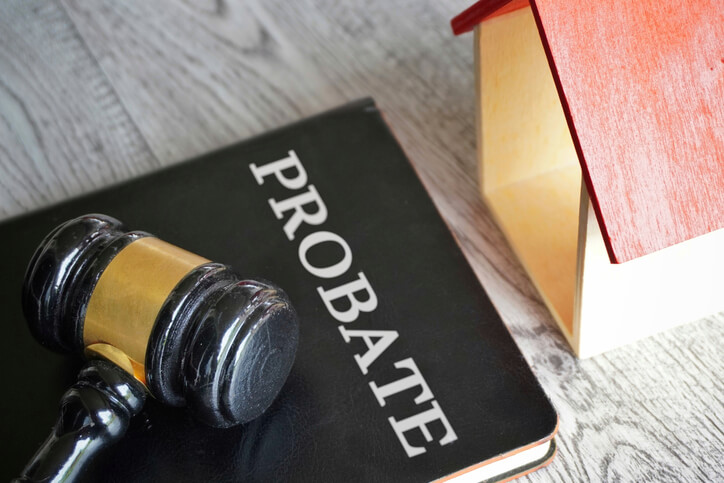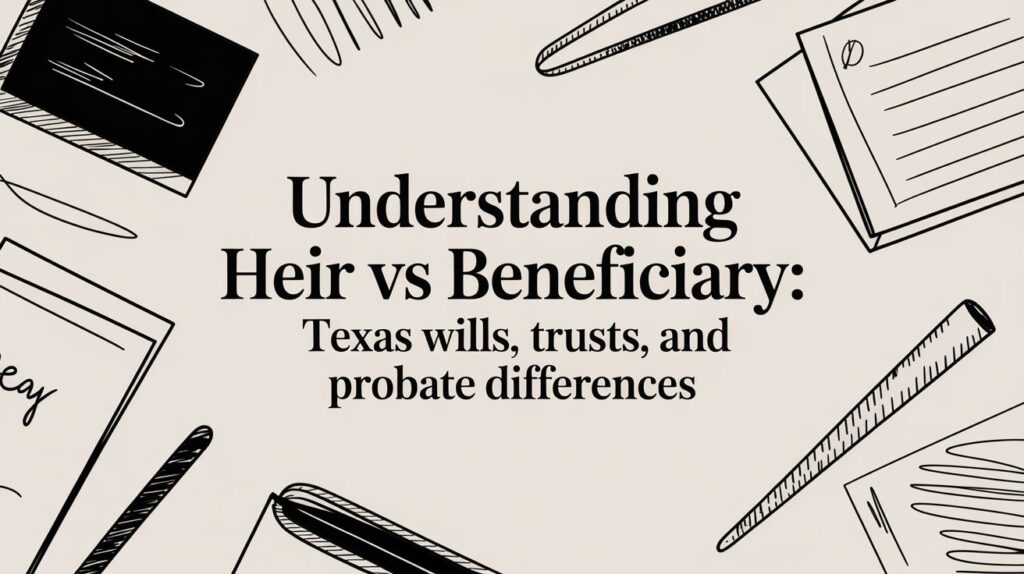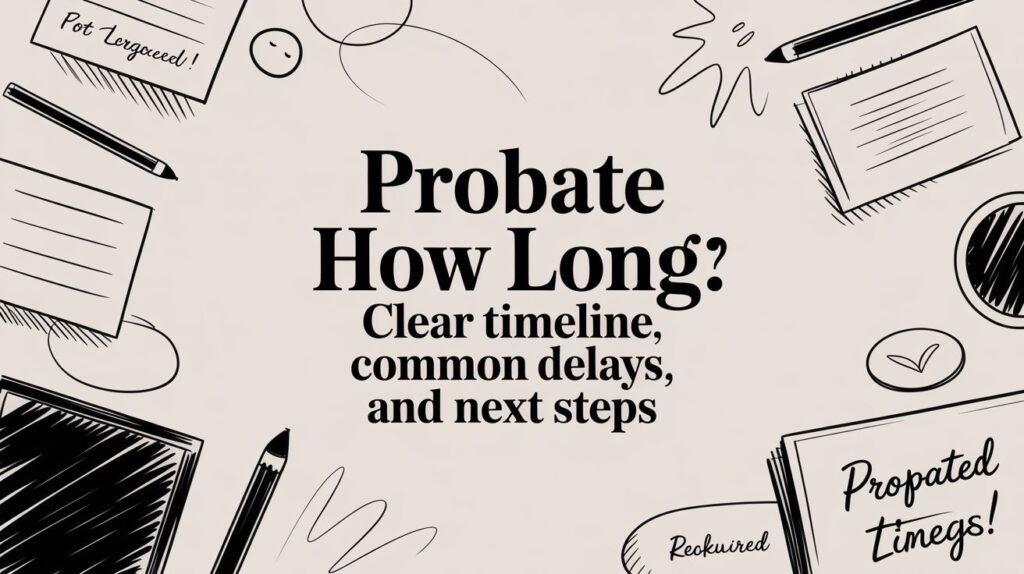The probate process in Texas is complex and often daunting, especially when it involves real estate assets. Executors and beneficiaries alike must navigate a maze of federal and state tax regulations that can significantly impact the estate’s value and the assets’ final distribution. Real estate typically constitutes a substantial portion of an estate’s wealth, making understanding how various taxes affect these assets during probate is crucial. This article delves deep into the federal and state tax implications on Texas real estate during probate, offering a comprehensive guide for executors, beneficiaries, and anyone involved in the probate process.
Understanding Probate and Real Estate in Texas
The Basics of Probate in Texas
Probate is the legal process through which a deceased person’s estate is administered, debts are paid, and assets are distributed according to the terms of the will or state law if no will exists. In Texas, probate can be relatively straightforward if the estate is small and uncontested, but it can become complicated when large real estate holdings are involved.
Real estate owned by the deceased is generally part of the probate estate unless it is held in a trust, owned jointly with the right of survivorship, or has a designated beneficiary. Executors must carefully manage these assets throughout the probate process, ensuring compliance with Texas law and fulfilling their fiduciary duties.
Types of Real Estate Involved in Texas Probate

In Texas, real estate can include a variety of property types such as:
- Residential Properties: Single-family homes, duplexes, and condominiums.
- Rural Properties: Ranches, farms, and undeveloped land.
- Commercial Properties: Office buildings, retail spaces, and industrial properties.
- Investment Properties: Rental properties, vacation homes, and other income-generating assets.
Each type of property comes with its own set of legal and tax considerations during probate, making it vital for executors to understand how these factors influence the estate.
Federal Taxes on Real Estate in Probate
1. Federal Estate Tax
The federal estate tax is one of the most significant taxes that can impact the value of an estate, including any real estate holdings. The tax is levied on the transfer of the deceased’s entire estate, including all real property, financial assets, and personal possessions.
The Estate Tax Exemption
As of 2024, the federal estate tax exemption is $12.92 million per individual. This means that only estates with a gross value exceeding this amount are subject to the estate tax. For married couples, the exemption can be doubled, allowing up to $25.84 million to pass tax-free to heirs. The estate tax rate for amounts exceeding the exemption is 40%.
Implications for Texas Real Estate
For estates with significant real estate holdings in Texas, the federal estate tax can pose a substantial financial burden. If the value of the real estate, combined with other assets, exceeds the exemption, the estate may be required to pay a large tax bill before assets can be distributed to beneficiaries. Executors need to obtain accurate appraisals of real estate assets to determine the total estate value and calculate any potential tax liabilities.
2. Capital Gains Tax
Capital gains tax is another federal tax that can impact real estate during probate, particularly when the executor decides to sell property as part of the estate settlement process.
Understanding Capital Gains
Capital gains tax is assessed on the profit made from the sale of an asset, including real estate. The tax rate depends on how long the asset was held, with different rates for short-term (held for less than a year) and long-term (held for more than a year) gains. However, when it comes to inherited property, the IRS provides a significant benefit through the “step-up in basis” provision.
The Step-Up in Basis
The step-up in basis adjusts the property’s tax basis to its fair market value at the time of the deceased’s death, rather than the original purchase price. This means that if beneficiaries sell the property soon after the decedent’s death, they may owe little to no capital gains tax. For example, if the deceased purchased a home for $150,000 and it is worth $400,000 at the time of death, the new basis for the heirs is $400,000. If the property sells for this amount, there would be no taxable gain.
3. Income Tax on Estate Income
During the probate process, the estate may generate income from various sources, including rental income from real estate or interest from investments. This income is subject to federal income tax and must be reported on the estate’s income tax return (Form 1041).
Filing Requirements and Tax Rates
The executor is responsible for filing the estate’s income tax return and paying any taxes due from the estate’s funds. Estate income is generally taxed at higher rates than individual income, with the highest rate reaching 37% for income over $14,450 in 2024. Executors must carefully manage the estate’s income to minimize tax liabilities, which might involve making strategic decisions about asset management during probate.
State Taxes on Real Estate in Probate
1. Texas State Estate Tax
Texas is one of the few states that do not impose a state estate tax. The state abolished its estate tax in 2005, which means that estates are only subject to federal estate taxes. This lack of a state estate tax can significantly ease the financial burden on Texas estates compared to states with additional state-level estate taxes.
Considerations for Out-of-State Property
However, if the deceased owned real estate in another state that imposes an estate or inheritance tax, that property might still be subject to those taxes. Executors must be diligent in understanding and complying with the tax laws of any state where the deceased owned property.
2. Property Taxes
While Texas does not have an estate tax, property taxes are a critical consideration for real estate during probate. Texas has some of the highest property tax rates in the country, and these taxes continue to accrue on real estate assets during the probate process.
Paying Property Taxes
The executor is responsible for ensuring that property taxes are paid on time during probate to avoid penalties, interest, or the risk of losing the property through a tax sale. If the estate does not have sufficient liquid assets to cover the property taxes, the executor may need to sell property or other assets to satisfy these obligations.
Managing Property Tax Liabilities
Given Texas’s high property tax rates, managing these liabilities is crucial. Executors should explore options such as appealing the property tax assessment if the value seems excessive or investigating payment plans to spread out the tax burden over time.
3. Homestead Exemptions and Other Property Tax Benefits
Texas offers several property tax exemptions that can be beneficial during probate, particularly the homestead exemption.
The Homestead Exemption
The homestead exemption reduces the taxable value of a primary residence, lowering the overall property tax bill. If the deceased had a homestead exemption in place, it could continue during probate, helping to reduce the estate’s property tax obligations.
Additional Exemptions
Other exemptions in Texas include those for seniors, disabled individuals, and veterans. Executors should review whether the deceased qualified for any additional exemptions, as these can significantly reduce the property tax burden on the estate. In some cases, these exemptions can transfer to a surviving spouse or other heirs, depending on the circumstances.
Strategies for Minimizing Tax Impact on Texas Real Estate in Probate
The tax liabilities associated with real estate in probate can be substantial, but there are strategies that executors and beneficiaries can employ to minimize these impacts. Below are some approaches that can help preserve more of the estate’s value.
1. Comprehensive Estate Planning
Effective estate planning is the most proactive way to minimize taxes on real estate during probate. By setting up living trusts, gifting property during the owner’s lifetime, or utilizing other estate planning tools, individuals can reduce the size of their taxable estate and mitigate the impact of federal estate taxes.
Using Trusts to Shield Assets

Trusts, particularly revocable living trusts, can be effective tools for keeping real estate out of probate entirely, which can reduce the administrative burden and potential tax liabilities. These trusts allow the property to be transferred directly to beneficiaries, bypassing the probate process and potentially avoiding estate taxes if structured correctly.
2. Leveraging the Step-Up in Basis
The step-up in basis can significantly reduce the capital gains tax burden on inherited real estate. Executors should ensure that they obtain a fair market value appraisal of the property at the time of the deceased’s death to establish the stepped-up basis accurately.
Timing of Sales
Selling property soon after the death of the decedent can help lock in the stepped-up basis and minimize capital gains taxes. However, executors must balance this with market conditions to ensure the estate gets the best price for the property.
3. Timing of Property Sales
Careful timing of property sales during probate can also play a crucial role in minimizing taxes. Selling a property earlier rather than later might prevent additional appreciation, which could trigger capital gains taxes. It’s important to consider market conditions—selling during a downturn might not be the best option, even if it minimizes tax liabilities.
4. Consider Tax-Deferred Exchanges (1031 Exchanges)
A 1031 exchange defers capital gains taxes by reinvesting the proceeds from selling an investment property into a like-kind property. While this strategy is more complex and may not be suitable for all estates, it can be a valuable tool in deferring taxes and preserving more of the estate’s value for heirs.
5. Paying Property Taxes Promptly
You need to pay property taxes during probate to avoid penalties or even foreclosure. Executors should prioritize these payments and may need to consider selling other estate assets or taking out a short-term loan if liquid funds are insufficient.
Avoiding Delinquency Penalties
Paying property taxes on time avoids the additional cost of penalties and interest, which can quickly escalate. It also
ensures that the estate remains in good standing, reducing stress and complexity in the probate process.
6. Taking Advantage of Property Tax Exemptions
As discussed earlier, Texas offers various property tax exemptions that can reduce the estate’s tax liability. Executors should ensure that any applicable exemptions are claimed and properly documented to maximize these benefits.
Transferring Exemptions to Heirs
In some cases, property tax exemptions can be transferred to heirs. For instance, a surviving spouse might continue to benefit from a homestead exemption, which can be vital in reducing ongoing property tax costs.
7. Seeking Professional Tax Advice
Navigating the tax landscape during probate can be overwhelming, especially for executors who are unfamiliar with tax law. Consulting with a tax professional, such as a CPA or tax attorney, can provide valuable insights and help ensure that all tax obligations are met efficiently.
Role of a Tax Professional

A tax professional can assist with filing necessary tax returns, calculating potential tax liabilities, and identifying opportunities for tax savings. They can also help executors understand complex tax rules and make informed decisions that benefit the estate.
Handling Multi-State Tax Issues
If the deceased owned property in multiple states, a tax professional can help navigate the various state-specific tax rules and ensure compliance with all relevant laws, potentially saving the estate from costly penalties and interest.
The Long-Term Impact of Taxes on Texas Real Estate in Probate
Effect on Heirs and Beneficiaries
The taxes levied on real estate during probate can have a long-term impact on the financial well-being of heirs and beneficiaries. High tax liabilities significantly reduce the value of the estate passed on to heirs, especially when it includes valuable real estate assets. Executors must consider the potential financial burden on beneficiaries and work to minimize this impact through careful planning and strategic decision-making.
Wealth Preservation Across Generations
For many families, real estate represents a significant portion of their generational wealth. The impact of federal and state taxes on this wealth can be profound, potentially limiting the assets available for future generations. By employing effective estate planning and tax minimization strategies, families can better preserve their real estate holdings and ensure that they continue to benefit future generations.
Conclusion: Essential Strategies for Texas Probate Real Estate TaxesConclusion: Navigating the Tax Challenges of Texas Real Estate in Probate
The impact of federal and state taxes on Texas real estate during probate is a multifaceted issue that requires careful planning and execution. Executors, beneficiaries, and estate planners must be aware of the various tax liabilities that can arise and take proactive steps to mitigate them. From understanding the federal estate tax and capital gains tax to managing property taxes and leveraging exemptions, there are numerous strategies that can help preserve the value of the estate for heirs.
In Texas, where real estate often forms the cornerstone of an estate’s assets, the stakes are particularly high. Executors diligently navigate these challenges, ensuring they meet all tax obligations while minimizing the estate’s financial burden. With the right approach and professional guidance, it is possible to navigate the complexities of probate and protect the estate’s assets for future generations.








